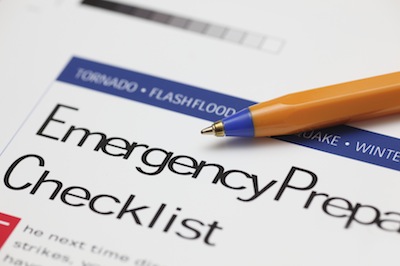What Immediate Steps Can You Take to Reduce Damage to Documents After a Disaster?
Tue, May 06, 2014
By: Jacob Gilmore

After a natural disaster strikes your business, it is important to survey the damage and make a plan for recovery. Though this is often a stressful and busy time, prioritizing what issues to handle first can keep you organized and on the way to resolving the damage caused by severe weather or unforeseen event. At the top of your recovery plan should be important records and documents. If your business is faced with damaged documents such as books, valuables, paper, microfilm or x-rays, there are ways to quickly rescue your belongings before it is too late. What immediate steps can you take?
1. Call a professional disaster recovery team of Gilmore Services/BMS CAT immediately and discuss your circumstances. Damaged wet documents will need to be frozen as soon as possible. If it is a small loss and your disaster plan calls for you to prepare the boxes for shipping, use the following recommendations for a successful document recovery.
2. Do not start to try to dry the documents with air conditioning, heat or dehumidifiers. Keep them out of the sunlight and air movement. This will cause swelling and cockling and make matters worse. Leave the documents wet and concentrate on developing your inventory for saving or secure destruction. You can rinse excess mud and silt off first if you are involved in a flooding.
3. Get sturdy boxes and double-line them with plastic trash bags. Place your document inside the plastic bags, tightly filling the boxes. Then ship them next day air for freeze drying, cleaning and sanitizing.
4. If your loss is larger and you are waiting for BMS CAT to arrive, then sit back, relax and work with Gilmore Services on your inventory priorities. Review your retention schedules. Determine priorities of which documents you would like back first. It is better not to try to start boxing things with your staff. There are a lot of safety and health issues involved. Slips, falls, strained muscles, injured backs and of course respiratory issues are things that could affect your staff. BMS CAT is trained for fast emergency response.
Do you have questions?
We welcome you to contact our records management company to find out more about document shredding and records storage and disaster recovery services.